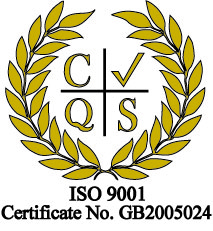Charity Audits
Auditors should be independent. They can, however, be involved with or support the charity, but they should make sure that their involvement does not affect the objectivity and impartiality of audit opinions and advice. It is crucial that the auditor knows the organisation, understanding wholly its mandate and mission, and how it is going to use its resources to achieve its goal. The auditor should be aware of where the money comes from, where it goes and also the systems within the organisation for controlling income, expenditure, staff resources, and management information, among other things.
The essentials of an effective audit are:
- Understanding the activity
- Identifying the key features
- Assessing the potential risks
- Planning
- Fieldwork
- Reporting
Auditing Income
Key points for the auditor to establish are: Where the income has come from – the origin.
Considering the origin will allow judgments to be made and how to audit it. If there are any restrictions on its use, there is an earmarking. The earmarking is necessary by law. Money received in trust must be used for the purpose for which it was intended. Ensuring that income and capital is mixed is important. A common error is treating endowment income as soon as it is received.
Is the type of income within the objects and the tax implications? Identifying the type of income is vital. Charities are governed by strict rules of what they can and cannot do. There are many tax implications to which charities must adhere. For instance, raising of funds itself is not a charitable objective. As a result, trading is usually outside the range of the activities that can be carried out by the charity unless it is part of the primary purpose or carried out by the beneficiaries is it incidental. Not in competition with other traders and supported because of the charitable connection. The definition of trade is extensive. A charity in receipt of a “donation” from a company may result in the company gaining a lot of publicity. Consequently, it is carrying out an advertising service and the “donation” is now trading income and subject to direct and indirect tax.
Auditing Expenditure
In general, the audit of expenditure is a control over the purchases, payments and creditor cycle. With a charity, it is key that the payments are within the charitable purposes. The auditors should seek to ensure that expenditure had been accurately budgeted for and approved and that payments are sufficiently controlled. The audit approach should check the adequacy of controls over:
- Analysis of expenditure
- Allocation of project expenditure to specific grants where necessary
- Ordering and creating a liability
- Update of creditor records
- Payment procedures
- Records of commitments for reporting and management purposes.
Analytical review procedures should be used to ensure that variances from budgets and expectations are investigated and discussed with budget holders.
Changes applying to accounting periods which start on or after 27 February 2007:
Charity audits
The 2006 Act simplifies the rules about when a professional audit is required and gives both charities which are companies and those which aren’t similar thresholds. The level of expenditure will no longer determine whether an audit is required. Similarly, the level of income and expenditure in the two preceding years will not affect audit requirements of non-company charities. A non-company charity’s accounts will have to be professionally audited if it has: gross income over £500,000; or gross income of more than £100,000 and the aggregate value of assets is over £2.8 million.
Audit of company charities
Small charitable companies with an income between £90k and £500k and a balance sheet total of up to £2.8 million aren’t required to have their accounts audited if they provide an audit exemption report by a reporting accountant. Below £90,000, neither a professional audit nor an accountant’s report is required for a charitable company unless the balance sheet total comes to more than £2.8m (but see ‘Changes coming up’ below)
Independent examination
For non-company charities below the audit threshold, an independent examination can be undertaken instead of an audit. Independent examination is required when gross income exceeds £10,000. If the income is above £250,000 then the independent examiner must hold a professional accountancy qualification specified in the Act or be a fellow of the Association of Charity Independent Examiners.
- Log in to post comments

